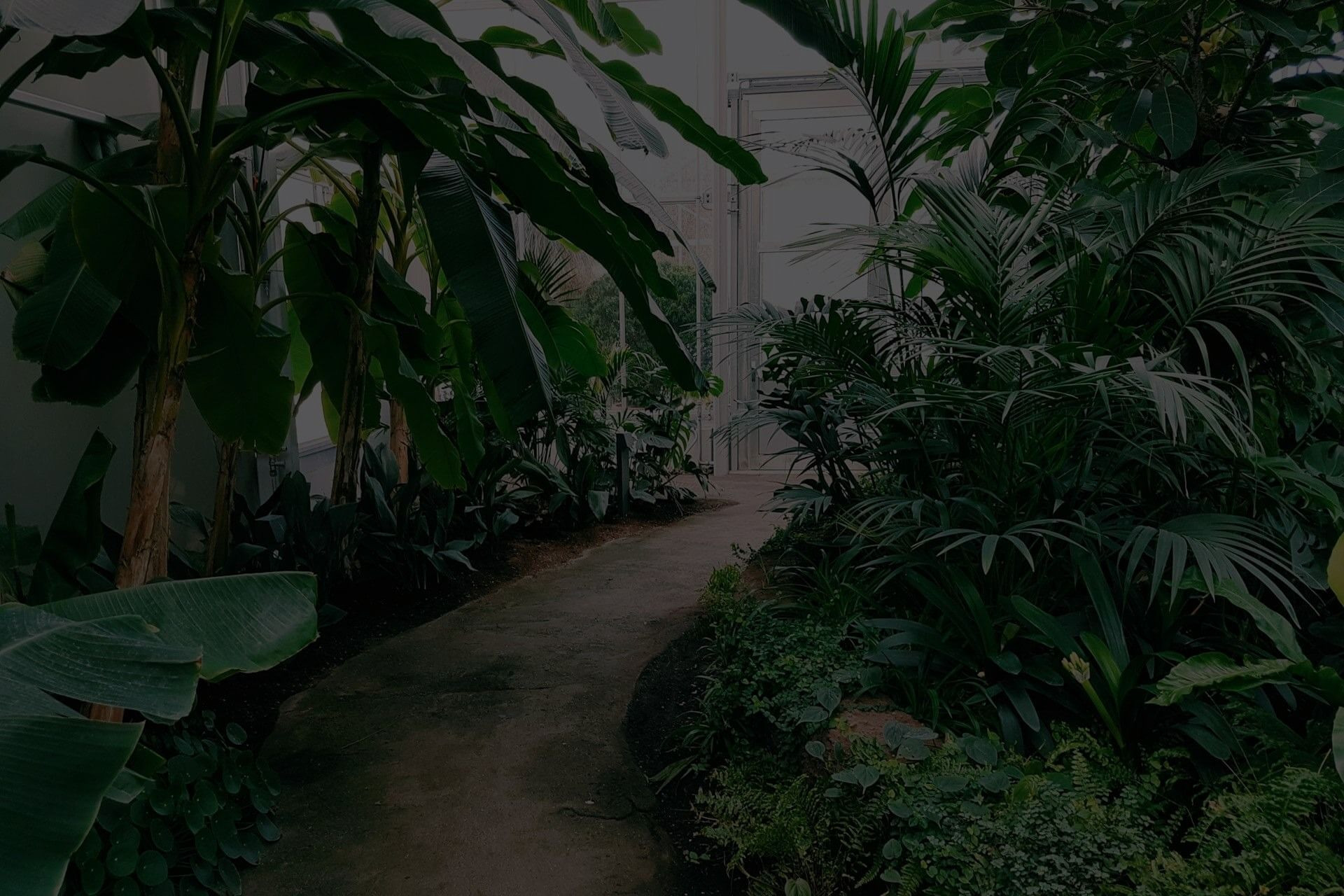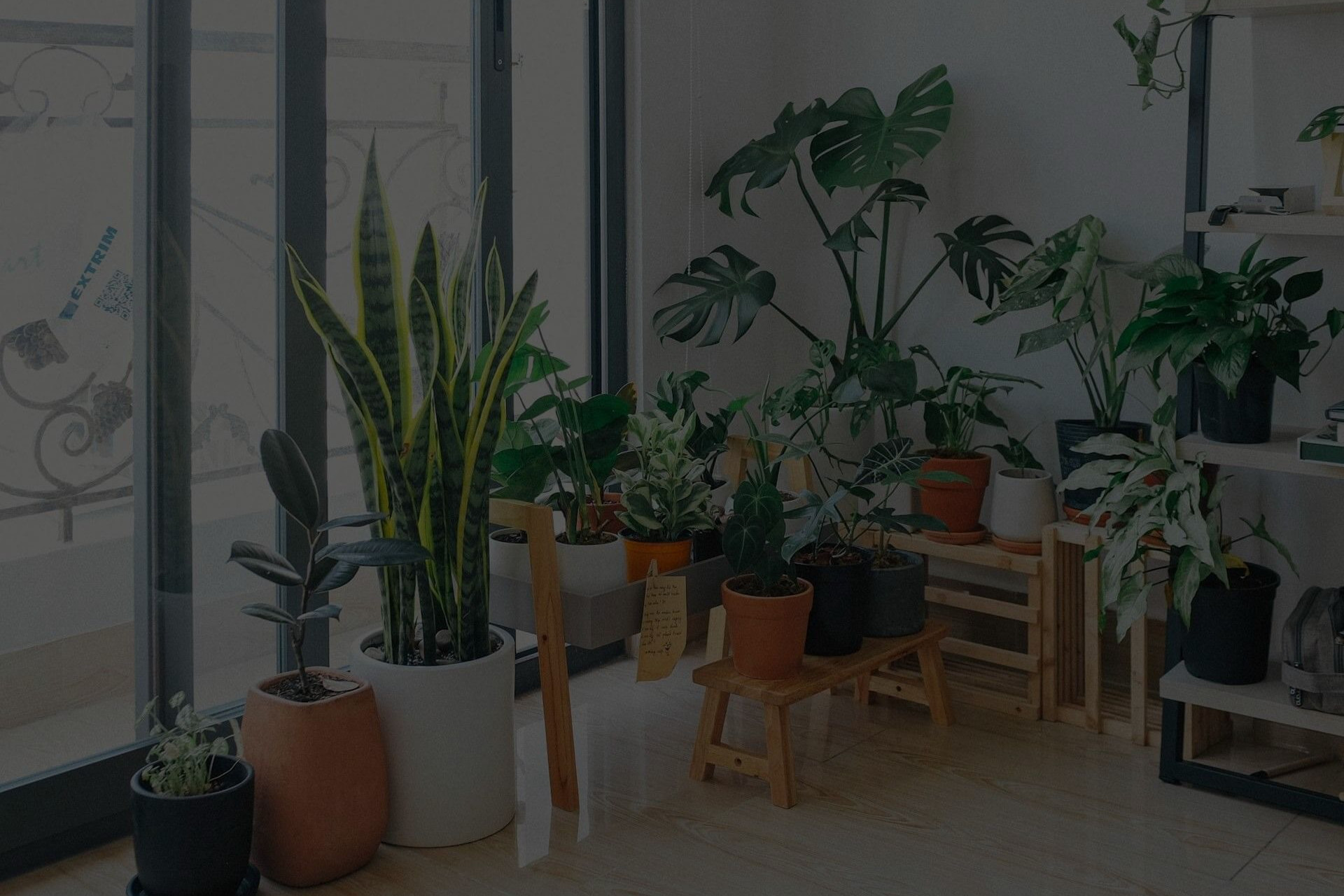Aphids on Indoor Plants: A Comprehensive Guide to Identification, Prevention, and Control
Aphids are one of the most common pests that can infest indoor plants, causing significant damage and stress to the plant. As an indoor plant enthusiast, it's essential to know how to identify, prevent, and control aphid infestations to ensure the health and well-being of your plants. In this article, we'll provide you with a comprehensive guide to help you deal with aphids on your indoor plants.
Table of Contents
- Aphids on Indoor Plants: A Comprehensive Guide to Identification, Prevention, and Control
- What are Aphids?
- How do Aphids Infest Indoor Plants?
- Signs of Aphid Infestation
- Preventing Aphid Infestations
- Organic Control Methods
- Chemical Control Methods
- Combining Prevention and Control Methods
- Conclusion
- Frequently Asked Questions
What are Aphids?
Aphids are small, soft-bodied insects that feed on plant sap. They are typically found on the stems, leaves, and flowers of plants and can be green, yellow, white, or black in color, depending on the species and the plant they're feeding on. Aphids are usually between 1-10 mm in length, and they have a distinctive pair of cornicles, or tailpipes, at the rear of their body.
How do Aphids Infest Indoor Plants?
Aphids can infest indoor plants through various means, including:
- Contaminated soil or potting mix
- Infected plants brought into the home
- Open windows or doors that allow aphids to enter from outside
- Contaminated gardening tools or equipment
- Infected plants propagated from cuttings or divisions
Signs of Aphid Infestation
Identifying aphid infestations early on is crucial to prevent the spread of the pests and minimize damage to your plants. Some common signs of aphid infestation include:
- Curled or distorted leaves
- White, cottony residue on the leaves or stems (aphid honeydew)
- Actual aphids on the plant, often found on the undersides of leaves or on the stems
- Ants or other insects attracted to the honeydew
- Reduced plant growth or stunted leaves
Preventing Aphid Infestations
Prevention is always better than cure when it comes to aphid infestations. Here are some tips to help you prevent aphids from infesting your indoor plants:
- Inspect plants carefully before bringing them into your home
- Use a well-draining potting mix and avoid overwatering
- Keep plants away from open windows and doors
- Avoid propagating plants from infested cuttings or divisions
- Use physical barriers, such as fine-mesh screens, to keep aphids out
- Keep your home clean, and avoid tracking aphids into your home on your clothes or gardening tools
Organic Control Methods
If you do find aphids on your indoor plants, there are several organic control methods you can use to get rid of them. These include:
- Isolate infested plants to prevent the spread of aphids
- Use neem oil or insecticidal soap to kill aphids
- Introduce natural predators, such as ladybugs or lacewings, to feed on aphids
- Use sticky traps or yellow traps to capture aphids
- Prune infested areas of the plant to remove aphids and prevent further spread
Chemical Control Methods
In severe cases of aphid infestation, chemical control methods may be necessary. However, it's essential to use these methods with caution and follow the instructions carefully to avoid harming your plants or the environment. Some common chemical control methods include:
- Insecticides, such as pyrethrin or permethrin
- Horticultural oil
Combining Prevention and Control Methods
The most effective way to deal with aphids on indoor plants is to combine prevention and control methods. By following the prevention tips outlined above and using organic or chemical control methods as needed, you can create a comprehensive aphid management strategy that will keep your plants healthy and thriving.
Conclusion
Aphids can be a significant problem for indoor plant enthusiasts, but by understanding how to identify, prevent, and control infestations, you can keep your plants safe and healthy. Remember to stay vigilant, monitor your plants regularly, and take action quickly if you notice any signs of aphid infestation. With the right knowledge and strategies, you can enjoy beautiful, aphid-free indoor plants for years to come.
Frequently Asked Questions
What are aphids, and how do they affect indoor plants?
Aphids are small, soft-bodied insects that feed on plant sap, causing curled or distorted leaves, stunted growth, and reduced plant vigor. They can also transmit plant viruses and attract other pests like ants and wasps.
How do aphids infest indoor plants?
Aphids can infest indoor plants through contaminated soil, infected plant cuttings, or by flying into the home on infested plants. They can also be introduced through open windows or doors.
What are the common signs of aphid infestation on indoor plants?
Common signs of aphid infestation include curled or distorted leaves, sticky honeydew droplets on leaves or stems, and the presence of aphids on the underside of leaves or on stems.
How can I prevent aphid infestation on my indoor plants?
To prevent aphid infestation, inspect plants carefully before bringing them indoors, isolate new plants for a few weeks, and maintain good air circulation around plants. Regularly inspect plants for signs of infestation and take action promptly if you notice any.
What is the best way to get rid of aphids on indoor plants?
The best way to get rid of aphids on indoor plants is to use a combination of methods, including spraying plants with water, using neem oil or insecticidal soap, and introducing natural predators like ladybugs or lacewings.
Can I use pesticides to control aphids on indoor plants?
While pesticides can be effective, they can also harm beneficial insects and contaminate soil and water. It's recommended to use organic or integrated pest management methods whenever possible.
How often should I inspect my indoor plants for aphids?
Regularly inspect your indoor plants for aphids, ideally once a week, to catch infestations early and take prompt action.
Can aphids spread from plant to plant?
Yes, aphids can spread from plant to plant through contact or by flying to nearby plants. Isolate infested plants to prevent the spread of aphids.
How do I isolate an infested plant?
Move the infested plant to a separate room or area, away from other plants, and cover it with a clear plastic bag to prevent aphids from flying to other plants.
Can I use sticky traps to control aphids?
Sticky traps can be effective in controlling aphids, but they may not eliminate the infestation. Use them in combination with other methods for best results.
How do I make a homemade aphid spray?
Mix 1 tablespoon of mild dish soap with 1 quart of water and spray the solution on plants to control aphids. Repeat every few days as needed.
Can I use neem oil to control aphids?
Yes, neem oil is a natural insecticide that can be used to control aphids. Mix neem oil with water according to the label instructions and spray it on plants.
How do I introduce natural predators to control aphids?
Introduce natural predators like ladybugs or lacewings to the infested plant, making sure to follow the supplier's instructions and release them in the evening when aphids are most active.
Can I use diatomaceous earth to control aphids?
Diatomaceous earth is a natural, non-toxic substance that can be used to control aphids. Sprinkle it on the soil and leaves, but avoid inhaling it yourself.
How long does it take to get rid of aphids on indoor plants?
The time it takes to get rid of aphids on indoor plants depends on the severity of the infestation and the methods used. It can take anywhere from a few days to several weeks to eliminate an aphid infestation.
Can aphids infest all types of indoor plants?
Aphids can infest most types of indoor plants, but they tend to prefer plants with soft, succulent leaves like ferns, African violets, and impatiens.
How do I prevent aphids from coming back after treatment?
To prevent aphids from coming back, maintain good plant hygiene, inspect plants regularly, and take prompt action if you notice any signs of infestation.
Can I use aphid-resistant plants to prevent infestation?
Yes, some plants are naturally resistant to aphids. Consider growing aphid-resistant plants like basil, mint, or chamomile to reduce the risk of infestation.
How do I dispose of infested plants?
Dispose of infested plants by bagging them securely and throwing them away. Do not compost infested plants, as this can spread the infestation to other plants.
Can I use essential oils to control aphids?
Some essential oils, like peppermint and lemongrass, have natural insecticidal properties that can help control aphids. Mix a few drops of the essential oil with water and spray it on plants.
How do I monitor for aphid infestation in a large indoor plant collection?
Monitor for aphid infestation in a large indoor plant collection by regularly inspecting plants, using sticky traps, and setting up a routine for inspecting and treating plants.
Can I use biological control methods to control aphids?
Yes, biological control methods like introducing natural predators or parasites can be an effective way to control aphids. Consult with a pest management professional for guidance.
How do I prevent aphids from spreading to outdoor plants?
Prevent aphids from spreading to outdoor plants by isolating infested plants, using row covers, and introducing natural predators or parasites to outdoor plants.
Can I use aphid-killing nematodes to control aphids?
Aphid-killing nematodes are microscopic worms that attack and kill aphids. They can be used to control aphids in soil and on plants.
How do I store plants to prevent aphid infestation during winter?
Store plants in a cool, dry place, away from direct sunlight, and inspect them regularly for signs of infestation. Consider treating plants with insecticidal soap or neem oil before storing them.
Indoor Plant Care A-Z
Adiantum Fragrans
Aechmea Blue Rain
Aechmea Fasciata
Aeschynanthus Marmoratus
Aeschynanthus Radicans Gesneriad
African Mask
African Spear
African Violet
Air Plant
Alocasia Amazonica
Alocasia Araceae
Aloe
Aloe Vera
Aloe Vera
Aloe Vera Barbadensis
Angel Wings Cactus
Anthurium Andraeanum
Anthurium Crystallinum
Arabian Coffee
Areca Palm
Aroid Palm
Arrowhead Ivy
Arum Lily
Asparagus Densiflorus 'Sprengeri'
Asparagus fern
Asparagus Setaceus
Aspidistra Elatior
Asplenium Antiquum
Asplenium Nidus
Athyrium Filix-Femina
Austrailian Ivy Tree
Austrocephalocereus Dybowskii
Austrocylindropuntia subulata
Azalea Plant
Baby Doll Ti
Baby Rose
Baby Tears
Baby Toes
Baby's Tears
Bamboo Palm
Banana Palm
Banana Plant
Banana Tree
Barbados Aloe
Begoniaceae Maculata
Bengal Fig
Benjamin Tree
Benjamin's Fig
Beringin
Bilbo Cactus
Bird Of Paradise
Bird's Nest Fern
Bird's Tongue Flower
Birds Nest Fern
Blue Pothos
Blue Rain Bromeliad
Blue Rain Plant
Blue Sansevieria
Blue Torch Cactus
Bonsai Ficus
Boston Fern
Boston Fern
Boy Flower
Brighamia insignis
Bromeliad
Buddha's Hand
Bunny Cactus
Burrageara Orchid X Oncidium
Burro's Tail
Butterfly Palm
Cabbage on a Stick
Cabeça-branca
Cactus
Caladium Lindenii
Caladium Magnificum
Calathea
Calathea Marantaceae
Calla Lily
Cambria
Cambria Orchid
Canna Leaved Strelitzia
Cape Jasmine
Cape Primrose
Cast Iron Plant
Cathedral Cactus
Cathedral Plant
Cereus Peruvianus
Ceropegia Woodii
Ceropegia Woodii 'Marlies'
Chain of Hearts
Chain of Pearls
Chamaedorea Elegans
Chinese Ape
Chinese Money Plant
Chinese PLant
Chinese Taro
Chlorophytum Comosum
Christmas Cactus
Christmas Kalanchoe
Cladophora
Cladophora Ball
Climbing Asparagus
Codiaeum Variegatum Var. Pictum
Coffea Rubiaceae Arabica
Coffee Bean
Coffee Plant
Common Purslane
Common Yucca
Cordyline Fruticosa
Corn Plant
Crab Cactus
Crane Flower
Crassula Arborescens
Crassula Hobbit
Crassula Ovata
Croton
Crystal Anthurium
Ctenanthe
Ctenanthe Pilosa Golden Mosaic
Curly Locks Cactus
Curtain Fig
Cycas Revoluta
Cylindrical Snake Plant
Date Palm
Day Flower
Delicious Monster
Devil's Ivy
Devil's Tongue
Devils Backbone
Dieffenbachia Araceae
Donkey's Tail
Dracaena
Dracaena Fragrans
Dracaena Fragrans Golden Coast
Dracaena Fragrans Janet Craig
Dracaena Fragrans Steudneri
Dracaena Magenta
Dracaena Marginata
Dracaena Sanderiana
Dragon Plant
Dragon Scale Alocasia
Dragon Tree
Dumb Cane
Dwarf Arrowhead Vine
Dypsis Lutescens Chrysalidocarpus
Easter Cactus
Elephant Bush
Elephant Ear
Elephant Yucca
Emerald Palm
English Ivy
Entangled Hearts
Epiphyllum Anguliger
Epiphyllum guatemalensis
Epipremnum Aureum
Epipremnum Aureum Neon
Epipremnum Pinnatum
Epipremnum Pinnatum Aureum
Eternity Plant
Euphorbia Enopla
Euphorbia Trigona
Euphorbia Trigona Rubra
Eves Pin Cactus
False African Violet
False Shamrock
Ficus Benghalensis 'Audrey'
Ficus Benjamina
Ficus Elastica
Ficus Elastica 'Ruby'
Ficus Ginseng
Ficus Microcarpa
Fiddle Leaf Fig
First Aid Plant
Fishbone Cactus
Five Holes Plant
Flaming Katy
Flaming Sword
Flamingo Flower
Flamingo Lily
Flamingo Plant
Florist Kalanchoe
Flowering Cactus
Freckle Face
Freckle Plant
French Peanut
Friendship Plant
Garden Ivy
Garden Rose
Gardenia Jasminoides
Giant Bird Of Paradise
Golden Cane
Golden Neon Pothos
Golden Pothos
Goldfish Plant
Guiana Chestnut
Guzmania
Guzmania Bromeliaceae
Happy Leaf Pothos
Hardy Elephant's Ear
Hardy Elephant's Ear
Hawaiian Ti Plant
Haworthia
Haworthia Rafiki
Heart Leaf
Hedera Helix
Hedera Helix Variagata
Hedera Hibernica
Heptapleurum Actinopyllum
Hobbit Jade
Horrida Plant
Horse's Tail
House Plant Cuttings For Propagation
Hoya Carnosa
Hurricane Plant
Hylotelephium Sieboldii
Hypoestes Phyllostachya
Inch Plant
Irish Ivy
Jade Plant
Jade Plant
Java Fig
Java Tree
Java Willow
Jelly Bean Plant
Jungle Boogie
Jungle Bush
Kalanchoe Blossfeldiana
Kalanchoe Delagoensis x Daigremontiana
Kleinia stapeliiformis
Korean Rock Fern
Lace Fern
Laceleaf
Lady Fern
Lake Ball
Lamb's Tail
Lemon Geranium
Leopard Lily
Lipstick Plant
Little Hogweed
Love Plant
Lucky Bamboo
Madagascar Jasmine
Maidenhair Fern
Malabar Chestnut
Malayan Banyan
Maranta Kerchoveana
Maranta Leuconeura
Maranta Marisela
Mason Congo Sansevieria
Measles Plant
Medicinal Aloe
Medicine Plant
Mexican Breadfruit
Milk Barrel Cactus
Miltonia Orchid
Ming Aralia
Mini Philo
Mini Swiss Cheese Vine
Missionary Plant
Mistletoe Cactus
Money Plant
Money Tree
Monkey Jars
Monstera
Monstera Adansonii
Monstera Deliciosa
Monstera Minima
Moss Ball
Moss Rose
Moth Orchid
Mother In Law's Tongue
Mother Of Thousands
Musa
Musa Basjoo Tropicana
N'Joy Pothos
Nemantanthus Gregarius
Nematanthus gregarious
Neon Devil's Ivy
Neon Pothos
Nepenthes Alata
Nephrolepis Exaltata
Never Never Plant
Night Blooming Cactus
Octopus Tree
Odontoglossum Orchid
Oilcloth Flower
Old Man Cactus
Oncidium Orchid
Opuntia Microdaisy Albata
Orchidaceae Phalaenopsis
Oxalis Triangularis
Pachira Aquatica
Pancake Plant
Pansy Orchid
Parasol Plant
Parlor Palm
Parlour Palm
Pass-it-along Plant
Passiflora Caerulea
Passionflower
Patio Rose
Peace Lily
Peace Lily
Peacock Plant
Pearl and Star Plant
Pelargonium Zonal
Peperomia Deppeana × Quadrifolia | Peperomia Tetraphylla
Peperomia Polybotrya
Peperomia Prostrata
Peruvian Apple Cactus
Philodendron
Philodendron 'Monkey Mask'
Philodendron Hederaceum
Philodendron Minima
Philodendron Scandens
Phoenix Canariensis
Pickle Cactus
Pickle Plant
Pilea Depressa
Pilea Mollis
Pilea Peperomoides
Pilocereus Azureus
Pincushion Euphorbia
Pink Jelly Beans
Pink Pork and Beans
Pink Splash
Pink Violet
Pitcher Plant
Polka Dot Begonia
Polka Dot Plant
Polyscias Fruticosa
Polystichum Tsussimense
Portulaca Umbraticolata
Portulacaria Afra Mediopicta
Pot Belly Fig
Pothos
Prayer Plant
Provision Tree
Purple Rain Plant
Purple Shamrock
Purple Wood Sorrel
Rabbit Ears Cactus
Rabbit's Foot
Rabbit's Tracks
Radiator Plant
Raindrop Money Plant
Raindrop Pilea
Rattlesnake Plant
Red Rhipsalis Cactus
Red Rubber Plant
Rhapidophora Tetrasperma
Rhipsalis
Rhipsalis Agudoensis
Rhipsalis Agudoensis
Rhipsalis Heteroclada
Rhipsalis Horrida
Rhipsalis Occidentalis
Rhododendron Inga
Ric Rac Orchid Cactus
Ric-Rac Cactus
Rosa
Rosary Plant
Rosary Vine
Rough Fern
Rubber Plant
Saba Nut
Sago Palm
Saint Barbara's Sword
Saint Paulia
Saint Paulia
Sansevieria Ehrenbergii
Sansevieria Trifascia
Sansevieria Trifasciata
Sarracenia
Satin Pothos
Savannah Geranium
Schefflera Arboricola
Schlumbergera Bridgesii
Scindapsus Pictum Argyraeus
Scindapsus Pictus
Sedum Morganianum
Sedum Rubrotinctum Variegata
Senecio
Senecio Herrianus
Senecio Rowleyanus
Senecio Stapeliiformis
Shark Fin Plant
Shark's Tooth Philodendron
Silver Dollar Plant
Silver Jade Plant
Silver Pothos
Silver Vase
Small-Leaved Fig
Small-Leaved Rubber Plant
Snake Plant
Snake Plant
Snake Tongue
Spanish Moss
Spathiphyllum
Spathiphyllum wallisii
Spear Sansevieria
Spider Plant
Spider Plant
Spiderwort
Spineless Yucca
Split-leaf Philodendron
Spotted Begonia
Star Plant
Stephanotis Floribunda
Stick Yucca
Stranging Fig
Strelitzia Alba
Strelitzia Nicolai
Strelitzia Reginae
Streptocarpus Saxorum
String of Beads
String of Hearts
String of Pearls
String of Tears
String of Turtles
Strings
Surprise Miltoniopsis
Sweetheart Plant
Sweetheart Plant Brazil
Swiss Cheese Plant
Swiss Cheese Vine
Sword Fern
Syngonium Erythrophyllum
Syngonium Nephphytis
Tailflower
Tears Pilea
Thanksgiving Cactus
Ti Leaf
Tiger Tooth Philodendron
Tillandsia
Tillandsia Ionantha
Tradescantia Albiflora
Tradescantia Commelinaceae Multiflora
Trailing Jade
Tropical Laurel
Tropicana Palm
Trout Begonia
True Aloe
Trumpet Lily
Trumpet Pitcher Plant
Trumpet Plant
Turtle Strings
UFO Plant
Umbrella Tree
Urn Plant
Variegated Chain of Hearts
Variegated Entangled Hearts
Variegated Laurel
Variegated Rosary Plant
Variegated Rosary Vine
Variegated Rubber Plant
Variegated String of Hearts
Vriesea splendens
Vuylstekeara Orchid
Wandering Dude
Wandering Jew
Wax Plant
Weeping Fig
Weeping Laurel
Whale Fin Plant
White Bird Of Paradise
White Crane Flower
White Flowered Wild Banana
Wild Banana
Wild Cape Banana
Yellow Palm
Yucca Elephantipes
Zamioculcas Zamiifolia
Zantedeschia
Zanzibar Gem
Zebra Basket Vine
Zebra Cactus
Zebra Lipstick Plant
Zebra Plant
Zebrina Pendula
Zigzag Cactus
Zuzu Plant
ZZ Plant
ZZ Plant
Harley Jennings
Harley Jennings is a renowned indoor plant expert with over 15 years of hands-on experience working with some of the UK's top botany and garden centers. Harley's passion for indoor plants blossomed early in his career, leading him to become a trusted authority in the field. He has spent years nurturing plants, researching the best care practices, and sharing his extensive knowledge with fellow plant enthusiasts.
Harley is the author of the comprehensive guide "The Complete Guide to Indoor Plant Care," where he combines his wealth of experience with a deep love for greenery. This guide provides readers with everything they need to know about indoor plants, from selection and placement to watering, feeding, and troubleshooting common issues.
In addition to his writing, Harley plays a pivotal role in the development of the Botanic Beam app, a revolutionary tool that offers plant lovers a wealth of information in one convenient place. The app simplifies plant care, providing tailored advice, reminders, and expert tips to help users create thriving indoor gardens.
Outside of his professional life, Harley enjoys urban beekeeping, finding a unique connection between nurturing plants and supporting local ecosystems. His relatable, down-to-earth approach makes him a favorite among both novice and experienced indoor gardeners. Whether through his guide or the Botanic Beam app, Harley Jennings continues to inspire and educate, helping people transform their homes into green sanctuaries.






